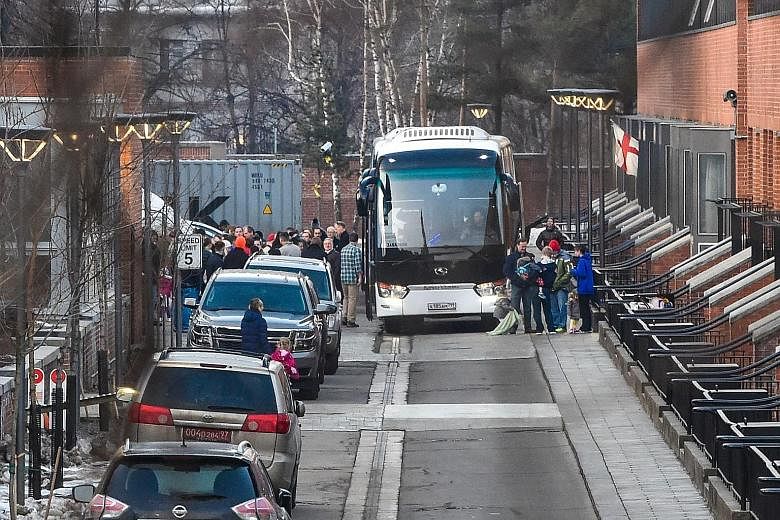MOSCOW • Russia World Cup organisers are more worried about Moscow's latest diplomatic standoff with the West than stadiums being completed on time, said top official Alexei Sorokin.
Mr Sorokin, chief of the Russia 2018 organising committee, told the Kommersant newspaper the poisoning of former Russian double agent Sergei Skripal was "not helping" preparations.
The nerve agent attack in England sparked mass expulsions and a decision by Britain and a few of its allies not to send officials to the June 14 opening.
It marked the first known use of chemical weapons in western Europe since World War II.
"Our main problem rests abroad - not with infrastructure," said Mr Sorokin.
"Any incident, whether it occurred naturally or was created artificially, is being used to put pressure on World Cup organisers."
Mr Sorokin said there was "nothing we cannot finish on time" despite work still remaining at six stadiums and airports in the smaller host cities.
But Vedomosti business daily reported that Moscow's busiest airport will not receive a crucial new runway in time for the World Cup.
It said the Rosaviatsiya state aviation agency has informed the Transport Minister that the Sheremetyevo airport project would not be ready by the June 14 kickoff.
Mr Sorokin also accused Moscow's critics of trying to use the fallout surrounding the poisoning to drive down attendances at Russian President Vladimir Putin's prestige event.
"I think the intention was there, but it is not working," said Mr Sorokin.
Moscow and London have been trading diplomatic barbs almost daily since Mr Skripal and his daughter Yulia fell ill in Salisbury on March 4.
Britain accuses Russia of poisoning Mr Skripal in retribution for passing on state secrets to London.
Russia's foreign intelligence chief Sergei Naryshkin on Wednesday called it a "grotesque provocation" concocted by British and US security services.
The diplomatic crisis does not appear to have dampened international interest in the first World Cup ever held in eastern Europe.
Football's world ruling body Fifa said on Tuesday it was happy foreign demand had accounted for a strong 53 per cent of the 1.7 million tickets purchased to date.
Yet sales in England have been atypically weak.
Fifa distributed a new batch of 400,000 tickets between March 13 and April 1.
Fans from England accounted for less than 1 per cent of that figure and have purchased just 31,000 tickets to date.
Their fears have been compounded by an attack by hundreds of Russian hooligans on English supporters in the French port of Marseille during Euro 2016.
Mr Sorokin told the Sport Express news site he had discussed Russia's security measures with British embassy staff in a bid to appease English concerns.
"We explained everything to them in detail," said Mr Sorokin.
But he said there would be no extra precautions for either England's squad or its fans.
"Each team will receive equal, full protection," added Mr Sorokin.
The other cloud hanging over the tournament has been Russia's past history of racist behaviour in both domestic and European competition.
"We need to do public outreach so that people understand that by doing such things, they are damaging Russia," Mr Sorokin told Sport Express.
AGENCE FRANCE-PRESSE

